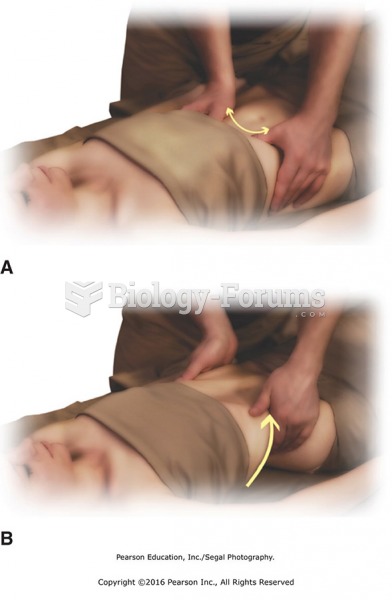This topic contains a solution. Click here to go to the answer
|
|
|
Did you know?
Cytomegalovirus affects nearly the same amount of newborns every year as Down syndrome.
Did you know?
Complications of influenza include: bacterial pneumonia, ear and sinus infections, dehydration, and worsening of chronic conditions such as asthma, congestive heart failure, or diabetes.
Did you know?
In 1864, the first barbiturate (barbituric acid) was synthesized.
Did you know?
Bacteria have been found alive in a lake buried one half mile under ice in Antarctica.
Did you know?
Limit intake of red meat and dairy products made with whole milk. Choose skim milk, low-fat or fat-free dairy products. Limit fried food. Use healthy oils when cooking.
 These examples of stimuli were used in the experiment by Vinckier et al. (2007). Mouton is the Frenc
These examples of stimuli were used in the experiment by Vinckier et al. (2007). Mouton is the Frenc
 Mobilize the ankle using the heels of the hands. Place the heels of the hands just under the ankle ...
Mobilize the ankle using the heels of the hands. Place the heels of the hands just under the ankle ...





